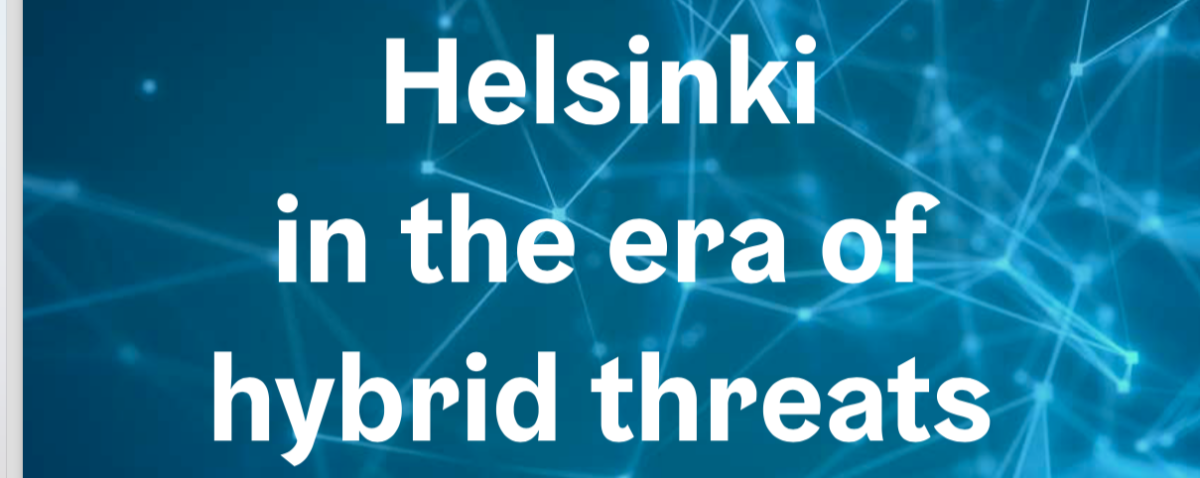Helsinki City has launched a report on hybrid threats and the kind of hybrid influencing that the city might encounter.
In Finland, the significance of the local level is emphasized by the broad self-government of municipalities and their responsibility for public services. A considerable proportion of the political decisions that affect people’s everyday lives are made by municipal boards and councils, and municipalities are in charge of social services, healthcare and education, for example.
These sectors are not only potential channels for exerting influence, but they also play a key role in the response to hybrid threats. Citizens’ trust in each other and official institutions has a major impact on society’s susceptibility to hybrid influencing, as well as resilience in the event of disruptions after the realization of a threat. Hence, responding to hybrid threats is largely in the hands of municipalities.
The report is based on a review of literature and public documents concerning the topic, a survey targeted at members of the Helsinki City Council, and interviews with a wide range of experts. The experts consulted include representatives of the City of Helsinki, the National Bureau of Investigation, the Hospital District of Helsinki and Uusimaa (HUS), the Finnish Border Guard, the National Emergency Supply Agency (including the Public Health Pool and Media Pool), Aalto University, Faktabaari, Cultura, the Regional State Administrative Agency of Southern Finland, CGI and KPMG, among others.
Hybrid CoE provided background support and supervision for the report.
The report (pdf) in English can be downloaded in full here.
The report (pdf) in Finnish.
The report (pdf) in Swedish.



